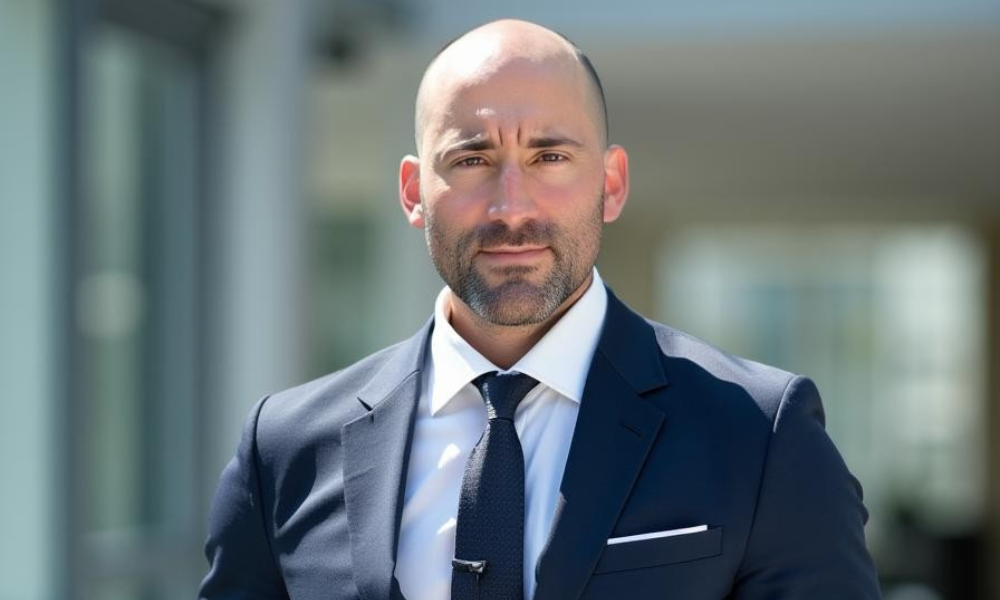

As a former professional hockey player who later transitioned to the wealth space, Billy Blase has some strong ideas about the needs of "high-earning, not rich yet" clients – the so-called HENRYs – and how those needs should shape the actions and strategies at his practice.
"Much like an athlete or a celebrity has a manager that helps them with everything that comes up in their life, we do the same thing when it comes to comes to money," Blase, a senior wealth advisor at Focus Partners Wealth, told InvestmentNews in a recent interview.
"You hear the term 'family office' get thrown around a lot ... I do consider my team as more like financial managers."
Before his current role at Focus, which is going through a new chapter of strategic growth, Blase spent much of his post-hockey professional life in the wirehouse world, with stints at Deutsche Bank, Merrill Lynch, and Citi.
With his background as a goaltender, the senior wealth advisor knows a thing or two about the importance of playing defense, particularly for clients who are earning major league salaries even as they're just starting on their wealth-building journeys.
"For a lot of these people, it's the highest dollar amount they're going to earn in their entire life," he says. "I think that even makes it more essential to get them set up in the right structure early, like trusts and estate plans and smart entity formation if needed."
One unique process at his practice, which he applies for athletes as well as other HENRY clients, involves collecting their paychecks and putting the money directly in their investment accounts. While that has raised some eyebrows among a handful of athlete clients, who'd been used to seeing the money go to their bank accounts, he says they inevitably come around.
"I always tell them, 'Try it this way, and we can always go back.' And I promise you, I never had one athlete go back. ... They can see that when we do it that way, their accounts grow quicker," he says. "It just puts us in a unique position to manage not only their investments, but also cash flow, bill pay, and coordinating taxes."
Currently, Blase estimates 20% of his team's time goes to purely investment-related activities; the majority of their day-to-day goes to handling complex issues that come up in the lives of the athletes he works with. That's in stark contrast to his previous experience at wirehouses, where he says the main focus was on investments.
"I believe that wirehouses are really built for the mass affluent. I don't think they're built for high performers with complex financial lives," he says. "I can say firsthand they're too rigid, they're too bureaucratic, and they're really not designed to deliver the kind of deeply integrated, high-touch service that HENRY clients really need."
Blase recalls instances where clients encountered a disruption or an opportunity that required them to move quickly, in some cases having to go on margin if they're in a pinch for cash. During his years in the wirehouses, he remembers being put through bureaucratic and compliance hoops, causing delays that ended up hurting the relationship.
"What was frustrating is you were doing the best you could, but it was almost like you were tied down by the powers that be," he says.
His experience runs parallel to some of the worst stories of working at an institution, with pressure from above to sell investment products and insurance, as well as a general fixation on generating revenue and making client relationships profitable early on.
"At my firm now, if we believe in the client, and they're good people with good values, and they're coachable, we'll take that client on," he says.
Right now, Blase says HENRYs comprise a large proportion of the clients at his practice, and in many cases, they're the first in their families to earn significant salaries.
"A lot of them came from blue-collar backgrounds, or grew up in the Midwest, or they just came from really nothing. ... They're now just participating in the wealth transfer," he says. "And so our job is to really help them set up generational wealth intentionally and avoid mistakes that can really erode it."

It is not clear how many employees will be affected, but none of the private partnership’s 20,000 financial advisors will see their jobs at risk.

The historic summer sitting saw a roughly two-thirds pass rate, with most CFP hopefuls falling in the under-40 age group.

"The greed and deception of this Ponzi scheme has resulted in the same way they have throughout history," said Daniel Brubaker, U.S. Postal Inspection Service inspector in charge.

Elsewhere, an advisor formerly with a Commonwealth affiliate firm is launching her own independent practice with an Osaic OSJ.

A survey reveals seven in 10 expect it to be a source of income, while most non-retired respondents worry about its continued sustainability.
Stan Gregor, Chairman & CEO of Summit Financial Holdings, explores how RIAs can meet growing demand for family office-style services among mass affluent clients through tax-first planning, technology, and collaboration—positioning firms for long-term success
Chris Vizzi, Co-Founder & Partner of South Coast Investment Advisors, LLC, shares how 2025 estate tax changes—$13.99M per person—offer more than tax savings. Learn how to pass on purpose, values, and vision to unite generations and give wealth lasting meaning
